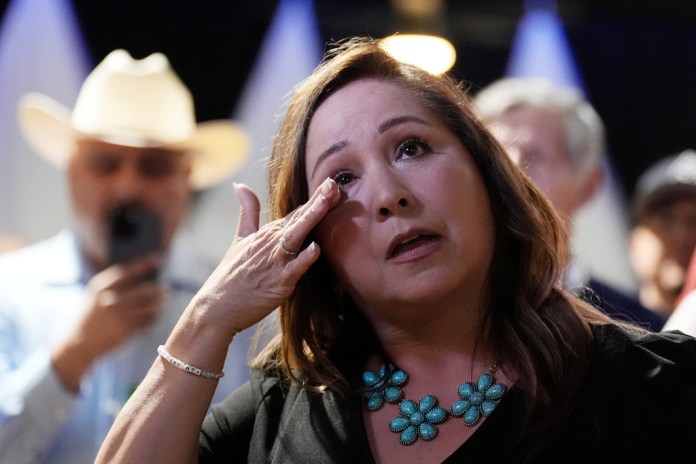AZ Court OK’s Language For Ranked-Choice Voting Ballot Initiative
On August 30, 2024, the Arizona Supreme Court ruled against a proposed rewrite of a ballot initiative aimed at ending partisan primaries ahead of the November election. The initiative, if approved, could lead to the implementation of ranked-choice voting (RCV) in Arizona. The court found that the legislative panel’s description of the initiative complied with state law and accurately described its intentions, overturning a previous ruling that deemed the language misleading.
The proposed Proposition 140 aims to amend the Arizona Constitution to allow all candidates to run in the same primary, with RCV determining winners in general elections with three or more candidates. RCV allows voters to rank candidates by preference, and if no candidate achieves a majority in the first round, the lowest candidate is eliminated, and their votes are redistributed until a candidate wins with a majority.
The ruling also follows a signature challenge against Proposition 140, raising concerns about the validity of the petition signatures required for it to appear on the ballot. If enough signatures are invalidated, it could prevent the initiative from being voted on in November.
On Wednesday, the Arizona Supreme Court struck down an attempt by supporters of a ballot initiative that would end partisan primaries to rewrite the measure ahead of the 2024 election. Approval of the proposal this November could lead to the adoption of ranked-choice voting (RCV) in Arizona.
Siding with state lawmakers, Arizona’s highest court ruled that the description used by the legislative panel responsible for writing ballot initiative summaries “accurately describes the Initiative” and “substantially complies” with state law. The ruling overturns a prior decision from a Maricopa County Superior Court judge, who according to the States Newsroom-affiliated Arizona Mirror, claimed the language used by the Legislative Council “was intentionally misleading.”
If passed by voters, Proposition 140 would amend the Arizona Constitution by instituting an open primary system in which candidates of all parties run in the same primary. The state legislature would be tasked with determining how many candidates advance to the general election, which would use ranked-choice voting to determine the winner in races with three or more candidates. Should the legislature fail to decide how many candidates run in general elections by Nov. 1, 2025, the decision would fall upon the secretary of state.
Under an RCV system, voters are asked to rank candidates of all parties in order of preference. If no candidate receives more than 50 percent of first-choice votes in the first round of voting, the last-place finisher is eliminated, and his votes are reallocated to the voter’s second-choice candidate. This process continues until one candidate receives a majority of votes.
RCV is predominantly favored by Democrats as a way of flipping traditionally Republican-held seats and has produced inaccurate election results and high rates of discarded ballots.
The Legislative Council reportedly noted in its summary that a “yes” vote on Prop 140 could result in RCV being used in general elections. This prompted Make Elections Fair Arizona, the group behind Prop 140, to file a lawsuit challenging the language, in which its members claimed the Council’s summary, as the Arizona Mirror described, “unfairly focuses on the possibility for ranked-choice voting, which is not mandated by the proposed constitutional amendment.”
The Arizona Supreme Court disagreed with the lower court’s claim that the Legislative Council’s description of the initiative was misleading and ruled that the panel’s description complies with state law.
“We unanimously conclude that the Council’s analysis substantially complies [with the law],” Chief Justice Ann Scott Timmer reportedly wrote. “The Council’s analysis in the first numbered paragraph therefore accurately describes this provision by stating that the Initiative would amend the constitution to ‘[a]llow for the use of voter ranking at all elections held in this state to determine which candidate received the highest number of votes.’”
Wednesday’s ruling came a week after the Grand Canyon State’s highest court separately allowed a signature challenge to Prop 140 to move forward. According to AZ Free News, the parties challenging the signatures submitted by Make Elections Fair Arizona to Secretary of State Adrian Fontes “have argued that there are 40,000 duplicative signatures in the batch, which, if discarded, would bring the initiative under the minimum number required for placement on the ballot.”
The Arizona Supreme Court said if it is ultimately determined there are enough invalid signatures to disqualify the initiative from appearing on the November ballot, it “should issue an injunction precluding any votes for the measure from being counted,” as the state began printing ballots on Aug. 23.
Make Elections Fair has since requested the high court reconsider its decision allowing for such a possibility, even if it’s later determined the measure lacked the number of valid signatures.
" Conservative News Daily does not always share or support the views and opinions expressed here; they are just those of the writer."




